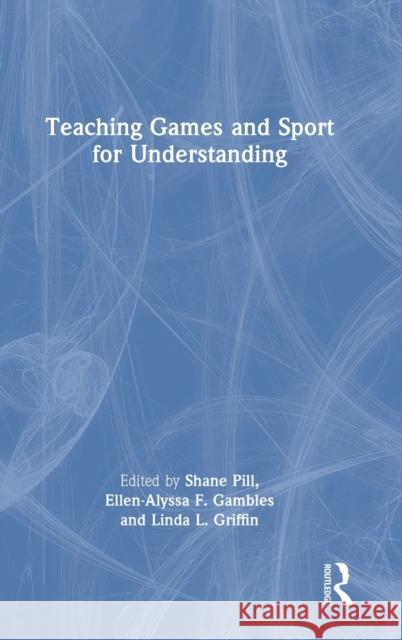Teaching Games and Sport for Understanding » książka
Teaching Games and Sport for Understanding
ISBN-13: 9781032287355 / Angielski / Twarda / 2023 / 224 str.
Teaching Games and Sport for Understanding
ISBN-13: 9781032287355 / Angielski / Twarda / 2023 / 224 str.
(netto: 672,22 VAT: 5%)
Najniższa cena z 30 dni: 629,67
ok. 16-18 dni roboczych.
Darmowa dostawa!
This book brings together leading thinkers in the field of teaching and sport coaching pedagogy. The chapters provide insight, learning and opportunities to foster game-based teaching and coaching ideas, and provide conceptual and methodological clarity where a sense of pedagogical confusion may exist.
This new book brings together leading and innovative thinkers in the field of teaching and sport coaching pedagogy to provide a range of perspectives on teaching games and sport for understanding. Teaching Games and Sport for Understanding engages undergraduate and postgraduate students in physical education and sport coaching, practicing teachers, practicing sport coaches, teacher educators and coach developers. The contributions, taken together or individually, provide insight, learning and opportunities to foster game-based teaching and coaching ideas, and provide conceptual and methodological clarity where a sense of pedagogical confusion may exist.
Each chapter raises issues that can resonate with the teacher and sport practitioner and researcher. In this way, the chapters can assist one to make sense of their own teaching or sport coaching, provide deeper insight into personal conceptualisations of the concept of game-based teaching and sport coaching or stimulate reflections on their own teaching or coaching or the contexts they are involved in.
Teaching games and sport for understanding in various guises and pedagogical models has been proposed as leading practice for session design and instructional delivery of sport teaching in PE and sport coaching since the late 1960s. At its core, it is a paradigm shift from what can be described as a behaviourist model of highly directive instruction for player replication of teacher/coach explanation and demonstration to instructional models that broadly are aimed at the development of players self-autonomy as self-regulated learners –‘thinking players’.
This innovative new volume both summarises current thinking, debates and practical considerations about the broad spectrumof what teaching games for understanding means as well as providing direction for further practical, pragmatic and research consideration of the concept and its precepts and, as such, is key reading for both undergraduate and postgraduate students of physical education and sport coaching as well as practicing teachers and sport coaches.











